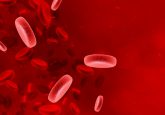Rapamycin shows potential for targeting a subset of pancreatic tumors

A recent study conducted by researchers at the Cancer Research UK Beatson Institute (Glasgow, UK) and the University of Glasgow and published in Gut, has highlighted the potential in using the genetic signatures of human pancreatic tumors to direct cancer treatment.
Pancreatic cancer has a very low 5-year survival rate and current chemotherapy regimens have conferred little survival benefit. There is therefore an urgent need for effective therapies for this disease.
In this study, researchers treated mouse models of pancreatic cancer with the drug rapamycin. This drug has previously been found to be ineffective for the treatment of pancreatic cancer; however, these previous studies analyzed all patients without taking into account the specific genetic signatures of their disease.
Rapamycin blocks the action of the protein mTOR, which controls cell growth and is overexpressed in pancreatic tumors that are associated with PTEN loss. In order to test whether these faulty PTEN tumors show mTOR dependence, the team compared the response to rapamycin in mouse models with PTEN mutations (KRAS PTEN) with another established model of pancreatic cancer, KRAS P53.
The team observed that rapamycin caused proliferative arrest and, in some cases, tumor regression, in the KRAS PTEN mice, indicating a dependence on mTOR signaling. This response was measured using positron emission tomography imaging. Pancreatic tumors in the KRAS P53 mice did not respond to treatment with rapamycin.
Analysis of human pancreatic tumors has demonstrated that approximately 20% of cases exhibit low PTEN expression. This study therefore suggests that targeted anti-mTOR therapies may be effective in a subset of pancreatic cancers with a faulty PTEN gene. This offers the potential opportunity to personalize treatments to specific types of pancreatic cancer.
Sources: Morran DC, Wu J, Jamieson NB et al. Targeting mTOR dependency in pancreatic cancer. Gut, DOI: 10.1136/gutjnl-2013-306202 (2014); Cancer Research UK press release


